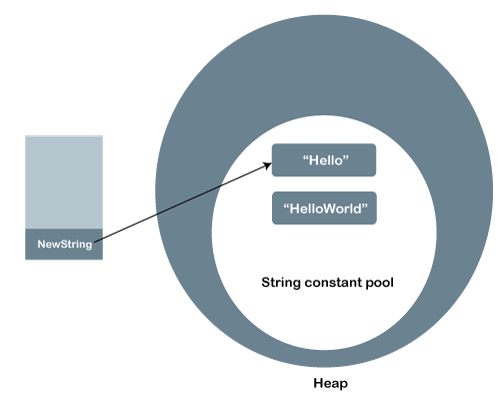Why Are Strings Immutable in Java? Safety and Efficiency Perks
Why Are Strings Immutable in Java? Safety and Efficiency Perks
Blog Article
Unalterable Strings: A Secret Element in Ensuring Data Uniformity and Integrity
In the realm of information management, the significance of immutable strings can not be overstated. The principle of unalterable strings goes beyond plain formality; it is a linchpin in the complicated internet of data administration.
The Principle of Unalterable Strings
Immutable strings, a fundamental concept in programming, describe strings that can not be changed as soon as they are produced. Fundamentally, as soon as a string worth is assigned, any operation that appears to change the string really produces a new string. This immutability guarantees information uniformity and dependability in applications, as it stops unforeseen changes to the original information.
Benefits in Data Uniformity

Information uniformity is vital in numerous facets of software program advancement, consisting of database management, multi-threaded environments, and dispersed systems (Why are strings immutable in Java?). Unalterable strings add significantly to accomplishing this uniformity by preventing information corruption due to concurrent access. In situations where several processes or threads engage with the very same data all at once, unalterable strings serve as a guard against race problems and synchronization problems
In addition, the immutability of strings simplifies debugging and screening processes. With immutable strings, designers can trust that when a string is established, it will continue to be unmodified, making it easier to trace the source of mistakes and guaranteeing that examination situations generate constant outcomes. This integrity in information dealing with ultimately results in much more stable and durable applications.

Implementing Unalterable Strings
Making certain the immutability of strings calls for a thoughtful strategy to their implementation in software application advancement. One vital method is to design string courses in such a way that avoids modifications when a string things is created. By making strings unalterable, designers can enhance data uniformity and dependability in their applications.
To carry out unalterable strings successfully, developers should favor developing new string items instead than customizing existing ones. This technique guarantees that as soon as a string is designated a worth, it can not be changed. Additionally, any type of operation that shows up to modify the string must produce a brand-new string with the desired modifications as opposed to altering the initial.
Additionally, using unalterable strings can streamline concurrency administration in multi-threaded environments. Considering that immutable strings can not be altered after production, they can be securely shared amongst multiple threads without the threat of information corruption.
Function in Integrity Assurance
In software program advancement, the usage of unalterable strings plays a critical duty in making certain the reliability of data procedures. Immutable strings, as soon as developed, can not be customized, guaranteeing that the data they stand for continues to be regular throughout the application's execution. This immutability building gives a degree of guarantee that the information being processed will certainly not be accidentally transformed, leading to unanticipated end results or errors in the system.
By integrating immutable strings into software application design, programmers can boost the integrity of their applications by reducing the dangers connected with mutable data - Why are strings immutable in Java?. click to investigate Immutable strings aid in preventing data corruption or unexpected adjustments, which can be especially crucial when managing delicate info or when data honesty is vital
Moreover, the usage of immutable strings streamlines simultaneous handling, as several threads can securely gain access to and share string data without the threat of one string changing the content while one more is reviewing it. This facet adds substantially to the general integrity of the software program system, making sure foreseeable and constant behavior in information taking care of operations.
Applications and System Integration
The smooth combination of immutable strings right into different applications and systems is crucial for guaranteeing durable data uniformity and dependability throughout varied technological settings - Why are strings immutable in Java?. Unalterable strings play a crucial function in enhancing the stability of information exchanges and interactions within facility software communities. By incorporating unalterable strings right into applications, programmers can alleviate the risks connected with information meddling, unauthorized adjustments, and unintentional alterations, consequently fortifying the general protection position of the system
In the context of system integration, immutable strings act as a foundational component for establishing protected communication networks and promoting seamless information transfers between various components. Their unalterable nature makes certain that data transferred between systems stays unmodified and verifiable, lowering the likelihood of variances or errors that can compromise the stability of the whole system. In addition, unalterable strings can enhance interoperability between disparate systems by giving a standardized format for data representation, making it possible for more efficient data processing and exchange protocols across interconnected platforms. By adopting unalterable strings in applications and system assimilation procedures, companies can strengthen their data framework and maintain the reliability and consistency of their information assets.
Verdict
In final thought, immutable strings play a critical role in keeping data consistency and integrity in different applications and system integrations. By making sure that strings can not be altered when created, the integrity of information is protected, decreasing the risk of mistakes and variances. Executing unalterable strings can significantly enhance the reliability of systems, inevitably causing more exact and reliable information handling.

Report this page